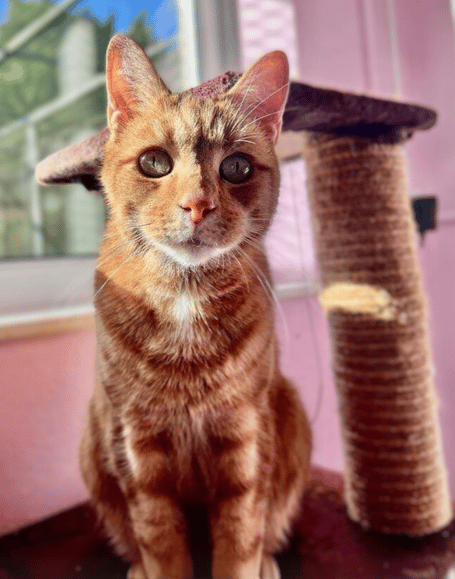In her latest column, ManxSPCA general manager Juana Warburton discusses pets’ role in divorce proceedings and introduces us to Rossi the cat...
Attachment issues relating to dogs manifest themselves in different ways – a dog unable to cope without its owner is said to have separation anxiety; and an owner unable to cope without their dog whilst going through a divorce may become fixated (and incur huge solicitor’s fees).
Last December a district judge in Manchester presided over the case of Fi V Do (yes, really!) in which the former husband was arrested after allegedly abducting the family dog. The judge ruled that the former wife should retain custody as the dog’s primary carer, despite the fact that the former husband paid more of the costs of the dog.
A campaigning group called Pets in Divorce wants to change the law so that pets are treated as more than possessions, ensuring that an animal’s wellbeing is prioritised. This would usually result in the animal’s primary carer retaining custody rather than the spouse who paid for its purchase or upkeep.
Sadly, most divorces involve intense emotions and people are often unable to prioritise the wellbeing of their pets above ‘winning’. And pets are not children who can often cope well with co-parenting and a 50:50 spilt of parental responsibility. Many pets are not happy living between two homes - one week with one person, and the next with another - and they prefer consistency and routine.
Even happily married couples can prefer the company of a cat or dog over that of their spouse. A recent survey by YouGov commissioned the Waltham Institute based in Leicestershire, involving 30,000 people in 20 different countries, found that pets outranked spouses as the preferred source of emotional and psychological support. This is most likely to be because animals don’t judge, and they don’t offer advice – they simply have a talent for ‘quietude’.
It has been well documented for many years that pet ownership is linked to enhanced physical wellbeing: adults with dogs, for example, tend to take more exercise (an additional 22 minutes per day and 2,800 more steps to be precise) and have less heart disease than non-owners; and children who live with furry friends tend to have fewer allergies and less infections.
All the more reason, then, to consider adopting a rescue animal – an animal like nine-year-old Rossi who needs an extra special person, or people, to take him home. He is the longest-term resident in our cattery having been with us for seven months. He has one of the large socialisation rooms and a huge outdoor run all to himself, and so life isn’t too tough, but he really needs a human to call his own.
Rossi can be a little stand-offish at times and does things on his own terms, and he doesn’t like being picked up, and so he’s not the cuddly companion that a lot of cat owners prefer. He also has a heart condition which may limit his life expectancy, but he doesn’t need medication and the more stress-free he is, the more likely he is to live into old age.
So, he needs a quiet new home with no other pets, and owners who will accommodate his quirks and give him time to settle down, allowing the affectionate side of his personality to flourish. He enjoys being outside but he’s equally happy curled up on a comfy chair.
He is an undeniably handsome cat with a unique personality, and he simply needs someone to recognise these qualities and to take him into their lives – could this be you?

.jpeg?width=209&height=140&crop=209:145,smart&quality=75)

.png?width=209&height=140&crop=209:145,smart&quality=75)
